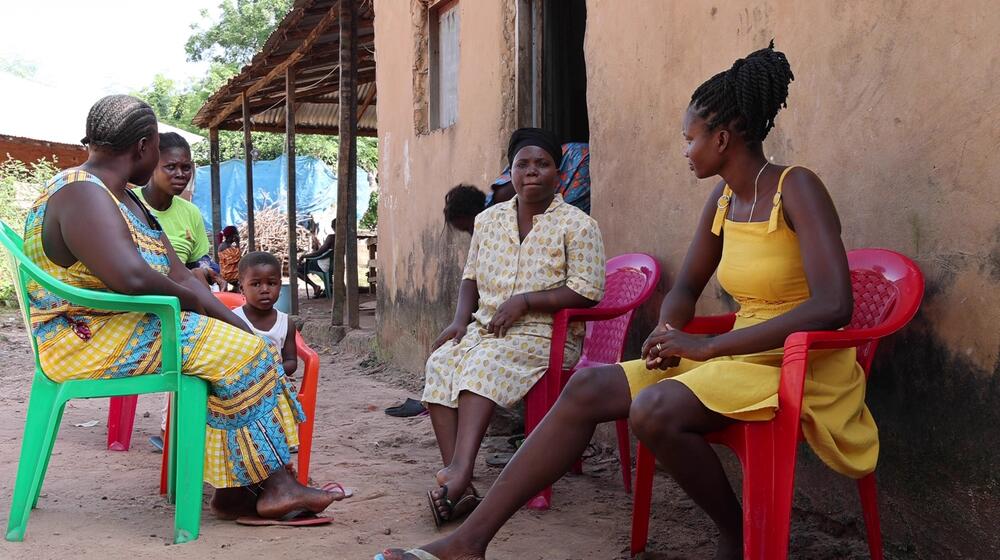News
“My life completely changed”: Treating bodies, minds and lives affected by obstetric fistula in Guinea-Bissau
- 16 June 2023
News
BISSAU, Guinea-Bissau – “I didn't know what obstetric fistula was, let alone that it could be treated,” says 33-year-old mother-of-two Maria.
Maria’s dream of expanding her family took a tragic turn in 2016. She was in eastern Guinea-Bissau, in Batafa region, when her labour pains began; but after more than 12 hours, she remained unable to deliver.
Maria was evacuated to the Simão Mendes National Hospital in Guinea-Bissau’s capital, but upon her arrival three hours later, an echography revealed her baby had died in utero.
Hours later, after being discharged from the hospital, Maria felt herself leaking bodily fluids. She had suffered an obstetric fistula, a devastating injury resulting from prolonged, obstructed labour, which causes incontinence.
Around the world, half a million women and girls are estimated to be living with obstetric fistula. Despite the condition’s prevalence, many women and girls who have sustained the injury find themselves abandoned and ostracized by family and community – resulting in both physical and psychological trauma.
Sadly, this was the case for Maria. “I used to think about suicide because of the severe stigma I suffered,” Maria said. “My family completely abandoned me.”*
Creating a virtuous cycle
As fistula does not just affect bodies, but lives and minds as well, the UNFPA-led Campaign to End Fistula works with communities around the world to provide both fistula repair surgeries and psychosocial support geared towards helping women and girls reintegrate into society.
In Guinea-Bissau, UNFPA worked in partnership with the government of Guinea-Bissau to provide free fistula repair surgeries to 42 women – three of whom were offered scholarships to train as midwives at the country’s National School of Health.
“This training opportunity will be rewarding for my integration into society,” says Vitoria, who received one of the scholarships. “I hope it will be extended to more women who are victims of this terrible disease.”
The programme aims to empower survivors to rejoin communities, with the knock-on effect of fortifying Guinea-Bissau’s cadre of midwives. These providers have been singled out for their critical role in preventing the occurrence of obstetric fistula in the first place.
“To end fistula, we need to make sure that all women and girls have timely access to trained midwives and high-quality obstetric care,” UNFPA Executive Director Dr. Natalia Kanem said on the 2023 International Day to End Obstetric Fistula. “That’s why UNFPA is working to scale up the midwifery workforce and close the global gap of nearly 1 million midwives.”

A chance at fistula repair heard over the airwaves
In 2021, Maria heard a radio advertisement that changed her life. It was for the treatment of obstetric fistula, and described the condition’s symptoms as similar to those she experienced.
She had not known the name of her condition, but received a diagnosis of obstetric fistula after seeking care at the Simão Mendes National Hospital in Bissau.
Two surgeries were required to repair her injury; the second was completed in 2022.
"After the repair, my life completely changed,” Maria said. “I feel wonderful. I don't use pads anymore."
*If you are struggling with suicidal thoughts, depression, trauma or any other mental health concerns, please seek help and advice from a trusted health provider as soon as possible.